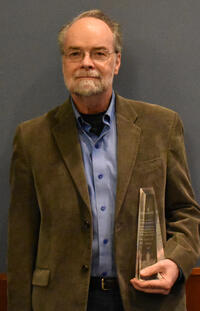Edwin Perkins received his PhD in Mathematics in 1979 under the direction of Frank Knight. He is Professor and Canada Research Chair in Probability in the Department of Mathematics at the University of British Columbia.
Over the past forty years, Professor Perkins has made deep contributions throughout the field of stochastic analysis, ranging from the study of Brownian motion to measure-valued processes, to stochastic partial differential equations and to interacting particle systems.
Over the last two decades an increasing body of evidence has confirmed that superprocesses are universal scaling limits of critical interacting particle systems above a critical dimension. Professor Perkins pioneered this direction of research. In particular, in collaboration with Ted Cox and Rick Durrett, he has shown that super-Brownian motion arises as the scaling limit of (among others) the voter model, the Lotka-Volterra model, and long-range contact processes.
The 'Perkins stochastic calculus', an analogue of Ito’s stochastic calculus in which individual Brownian paths are replaced by Brownian trees, provides a natural approach to the study of measure-valued stochastic processes with interactions. In 2013 Professor Perkins, in collaboration with Cox and Durrett, developed a general methodology for determining the long-time behavior of a large class of spin systems. The results apply to a range of important examples from physics and biology. The methods give sufficient, and often asymptotically sharp, conditions for coexistence or extinction.
Professor Perkins’ research has received widespread recognition. His awards include the Rollo-Davidson Prize, the NSERC Canada Steacie Fellowship, and the CRM-Fields Prize. He is a fellow of the Royal Society of London and the Institute of Mathematical Statistics. He gave an invited lecture at the 1994 International Congress of Mathematicians and has been regularly invited to the most prestigious conferences in probability and statistics. Among other keynote lectures, he gave a special invited lecture at the World Congress of the Bernoulli Society in 1994, and the Doob Lecture at the Conference on Stochastic Processes and their Applications in Berlin 2009.
One of his nominators writes "Ed has shaped a large part of the international research effort in stochastic analysis over the last forty years, both through his own deep contributions and through his selfless commitment to supporting others." He is widely recognized in the mathematics community for his leadership and, perhaps especially, for the generous support and encouragement that he offers to young people as they embark on their careers. His work continues to open new promising directions and to have a strong influence on the development of probability theory.
